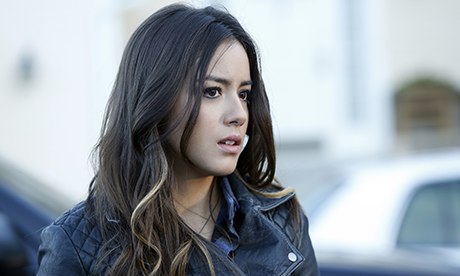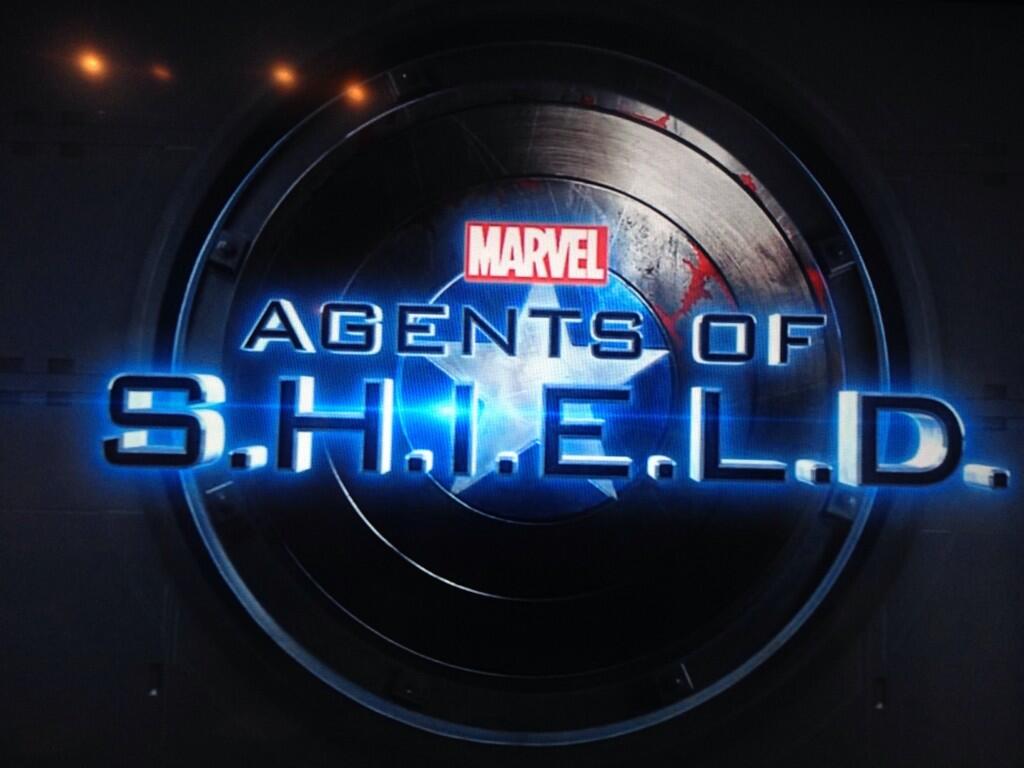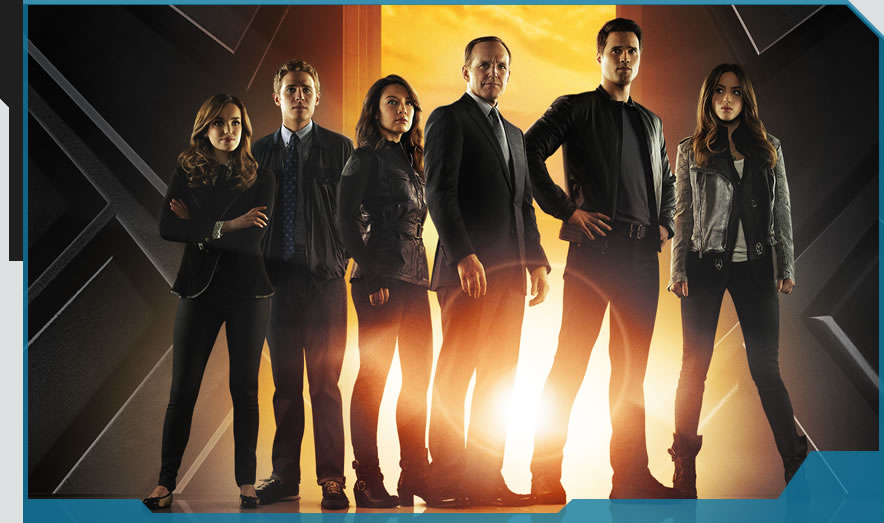Marvel’s Agents of S.H.I.E.L.D. closed up its tumultuous first season this week with a crowd-pleasing, action-packed finale. The series, which began with a string of poorly-received episodes that left the excitable Marvel fandom shaking its head, enjoyed a sizable spike in both viewership and quality after the events of the blockbuster Captain America: The Winter Soldier rocked the world of S.H.I.E.L.D. to its core, essentially relaunching it as a completely new show. With the series now officially renewed for a second season (to be joined by a new series starring Agent Sharon Carter!) Agents of S.H.I.E.L.D. has the opportunity to continue its impressive upswing instead of being added to the long list of shows that were canceled just as it was finding its footing. Because yes, despite starting out as Marvel Studios’ first abysmal failure, Agents of S.H.I.E.L.D. has finally blossomed into a series that’s satisfying both as its own product and as a part of the larger Marvel Cinematic Universe.
Spoilers ahead for the first season of Marvel’s Agents of S.H.I.E.L.D. and for Captain America: The Winter Soldier.
From its very announcement in the wake of Marvel’s The Avengers, Agents of S.H.I.E.L.D. was always dependent on at least one element from the established film universe: Agent Phil Coulson, (Clark Gregg) who appeared in increasingly large roles in four of the six Marvel Phase One films, and the law enforcement institution that gives the series its name. While it’s the young Marvel Studios’ first foray into television, S.H.I.E.L.D. is essentially a low-budget spin-off, and like most spin-offs, it depends on the audience’s interest and familiarity with its source material. Given that the source material includes not only a successful film franchise but a massive, half-century-old comic book world, there was so much speculation about the series from the outset that surprising the built-in audience would have been next to impossible.
Fans and critics went go into the show expecting that the new series would be intertwined with the movies, and there was some disappointment after the first episodes made it clear that this series would focus mostly on original characters taking on smaller problems that would be unlikely to affect the larger Marvel status quo. Agents of S.H.I.E.L.D. seemed determined to establish itself as its own entity, depending as little on the Marvel Cinematic Universe as possible, and incorporating only the most obscure and unexciting characters from the comics, as not to upstage the show’s original characters.
The show’s real problem was just how upstage-able its original characters were. Agent Coulson, while always charming in the small doses viewers were offered in the Marvel movies, wasn’t quite as fun as a leading man as he was as a foil. Team badasses Melinda May (Ming-Na Wen) and Grant Ward (Brett Dalton) could deliver small-scale action but lacked charm or complexity, particularly in the case of Ward, a character whose lack of personality was so profound that they had to make it a joke on the show. Meanwhile, adorable scientists Leo Fitz (Iain De Caestecker) and Jemma Simmons (Elizabeth Henstridge) proved a bit too precocious for their own good, with their rote platonic-married-couple crosstalk proving no substitute for legitimate texture.

The writers’ attempts to forcefeed super-hacker Skye (Chloe Bennet) nearly suffocated the show. (Screencap: The Guardian)
Worst of all was Skye, (Chloe Bennet) the insufferable hacktivist who was set up as the show’s viewpoint character. Skye started the series as a wunderkind with a Wesley Crusher-like capacity to save the day when all the seasoned, experienced super-agents fail. Her background as a member of a Snowden-inspired cyber collective did nothing to endear her to an audience looking for a show about secret agents. The writers’ insistence of Skye’s coolness was increasingly grating as more wrinkles were added, like Skye’s mysterious supernatural alien origin, that promises to raise her to new messianic importance.
But while the show began with the feeling of a bland network procedural, Agents of S.H.I.E.L.D. improved in leaps and bounds over the course of the season, and it did so by expanding both upward, giving greater depth and complexity to its original characters, and outward, reaching farther out into the established Marvel movie universe and comic book lore. Coulson’s faith in S.H.I.E.L.D. and in his mentor Nick Fury (Samuel L. Jackson, who made two memorable appearances this season) were put to the test as he solved the mystery of his post-Avengers resurrection. Melinda was burdened with spying on her friend and commanding officer – and getting caught. Fitz struggled to be taken seriously as a field agent rather than just a tech nerd, and with his own unrequited feelings for constant companion Simmons. Skye actually suffered consequences for her too-cool-for-school attitude and had to earn the respect she’d previously been granted automatically by being the writers’ pet.
Dethlok (J. August Richards) became a recurring character. Lady Sif from the Thor films made a guest appearance. A weird blue alien corpse that may have been a Kree was unearthed in a S.H.I.E.L.D. lab, meaning the series could even build connections to upcoming cosmic-level Marvel events like Guardians of the Galaxy. Bill Paxton joined the supporting cast as roguish Agent John Garrett, bringing some much-needed star power and charisma, plus another familiar name for die-hard comics fans. By mid-season, it seemed as if Agents of S.H.I.E.L.D. was finally comfortable dipping its toes into the Marvel Universe.
And then they dove in headfirst.

S.H.I.E.L.D.‘s promise of a direct connection to the new Captain America movie turned out to be anything but empty. (Promo image, captured by ComicBook.com)
Despite the slow and steady increase in quality, the bulk of Marvel Studios fandom had given up on Agents of S.H.I.E.L.D. by the time Captain America: The Winter Soldier hit theaters, but the movie’s big twist – that S.H.I.E.L.D. itself had been infiltrated by the terrorist group HYDRA and needed to be dismantled entirely – had even the more jaded Marvel fans curious. “They just started that TV show – what the hell are they gonna do now?” The promise of an epilogue to The Winter Soldier was enough to win back their attention, and the higher-budget, higher-stakes and overall higher-quality final third of the season succeeded in reeling those viewers in and securing the show’s future with ABC.
The “Uprising” arc, which revealed that many of this season’s stories were all connected to the HYDRA plot in The Winter Soldier, completely flipped the world of the show and solved most of its remaining problems almost instantly. The stakes were raised by turning the protagonists from authority figures with nigh-infinite resources to fugitives fighting to save their new family. Ward turned out to be a HYDRA mole all along (yes, this was planned from the beginning) and as a result became a lot less boring. His replacement, Antoine “Trip” Triplett (B.J. Britt) served a similar role but was thirty times as charming (though the bar was not set very high.) John Garrett was revealed to be the show’s Big Bad, which was good because it meant there would be a lot more Bill Paxton on the show.
The clearest example of the show’s rise in quality is how much Skye has improved as a character. Once a poisonous presence to her every scene, Skye gradually distinguished herself as a character worthy of her position on the show. While she was always headstrong, Skye has grown out of her self-important hacktivist bent and become a genuine badass rather than simply being treated like one. (See: her standing up to the traitorous Ward in “Nothing Personal.”) Her arc may have been a direct response to criticism of the show, as her thoughtless actions early on force her to start over at the lowest rung of the ladder and work her way back up. (Not a bad metaphor for the season as a whole, actually.)
This week’s season finale sets up a new status quo for the show, as Nick Fury charges Coulson with the task of rebuilding S.H.I.E.L.D. from the ground up. The show’s creators have a similar quest ahead of them. Like Coulson, they’ve been retrieved from the precipice of death and given a chance to start fresh, not as part of an unstoppable institution, as the show’s rocky start proved Marvel Studios was capable of a flop, but as a scrappy insurgency whose mission is to regain the trust and admiration of a public that’s written them off. Whether or not Agents of S.H.I.E.L.D. can carry the same momentum that took it from “bad” to “good” into the territory of “great” remains to be seen, but if the last stretch of episodes is any indication of their trajectory, Marvel’s future in television could be as bright as its present film glory.
Agents of S.H.I.E.L.D. returns next season on ABC.


